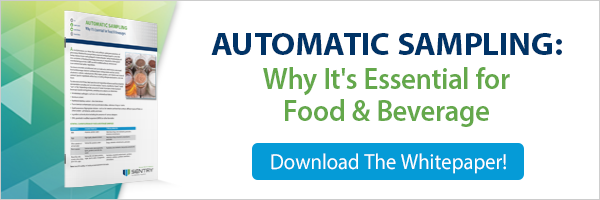
Food allergy is a rising public health concern. Researchers estimate that up to 15 million Americans have food allergies, including 9 million – or 4% – of adults and 6 million – or 8% – of children. Young children are affected most. While some food allergies resolve over time, allergies to tree nuts, peanuts, fish or shellfish generally are lifelong (Food Allergy Research & Education).
The immune system of those with food allergies overreacts to a particular protein found in that food – and symptoms can occur when the allergy sufferer comes in contact with even a minute amount of the food. Eight foods are responsible for the majority of allergic reactions: cow’s milk, eggs, fish, peanuts, shellfish, soy, tree nuts and wheat (American Academy of Allergy, Asthma & Immunology). However, there also are other less common allergens that can trigger reactions.
A food allergy reaction can be deadly, and as a food producer, you must ensure that one does not occur due to failure to identify an allergen or mislabeling. In fact, mislabeled allergens are one of the most common causes of food recalls. To protect consumer safety and ensure quality, it is important to implement thorough allergen management – including automatic sampling – in your Food Safety Management System (FSMS).
Responsibly sourcing raw ingredients from trusted suppliers that document and certify their goods is best practice in the food industry. Each ingredient or additive can be coded as high, medium or low risk as it relates to food safety hazards, including allergens. Many food processors and regulations specify clear limits of tolerance and acceptability to ensure quality and safety; therefore, ingredient suppliers must reliably sample and test regularly.
As a food processor, validating your raw ingredients is central to your food safety program. It is possible your raw ingredients were processed in a facility that also handles allergenic materials and have been exposed to cross-contact. Sampling and testing at your raw materials intake points will ensure that all incoming ingredients are below the tolerance limits to reduce the risk of an adverse situation. If sample analysis identifies allergens in incoming raw materials, the ingredients must be segregated and stored away from other materials, and equipment must be sanitized.
Sampling and testing at your raw materials intake points will ensure that all incoming ingredients are below the tolerance limits to reduce the risk of an adverse situation.
If product is produced in a facility where allergenic product also is produced, the final product must be sampled as well to ensure it does not contain allergens. Foods and beverages should be sampled automatically in the production line to obtain a truly representative sample. This means that the sampler continuously draws a composite sample representative of the entire batch or lot.
Automated sampling – where a sampler is placed within the process – provides the inherent benefits of automation, with a composite sample easily and safely obtained with no need for direct human interface or interference. This ensures the integrity of the sample and increases productivity over manual sampling. Because the production line does not need to stop for product sampling, production can continue efficiently.
Sampling can help you trace where in your process an allergen might have entered so you can identify and stop it at the source. This will make it easier to address any adverse situations (such as a recall) that may occur, such as inadvertently adding an incorrect ingredient or using the wrong label for a particular product. Sampling can help you ensure the product is properly labeled so all ingredients are listed with allergens highlighted.
Automated sampling and meticulous analysis of your samples ensures that allergens do not make it to your final product – which can help prevent recalls and potentially fatal situations. Preserving your company’s reputation and ensuring the safety of your consumers is well worth the nominal cost of automated representative sampling.
Learn more about Sentry samplers for foods and beverages.
Allergen program management source: Knowledge Brief, Allergen Management, ETQ. Provided by Food Processing.




